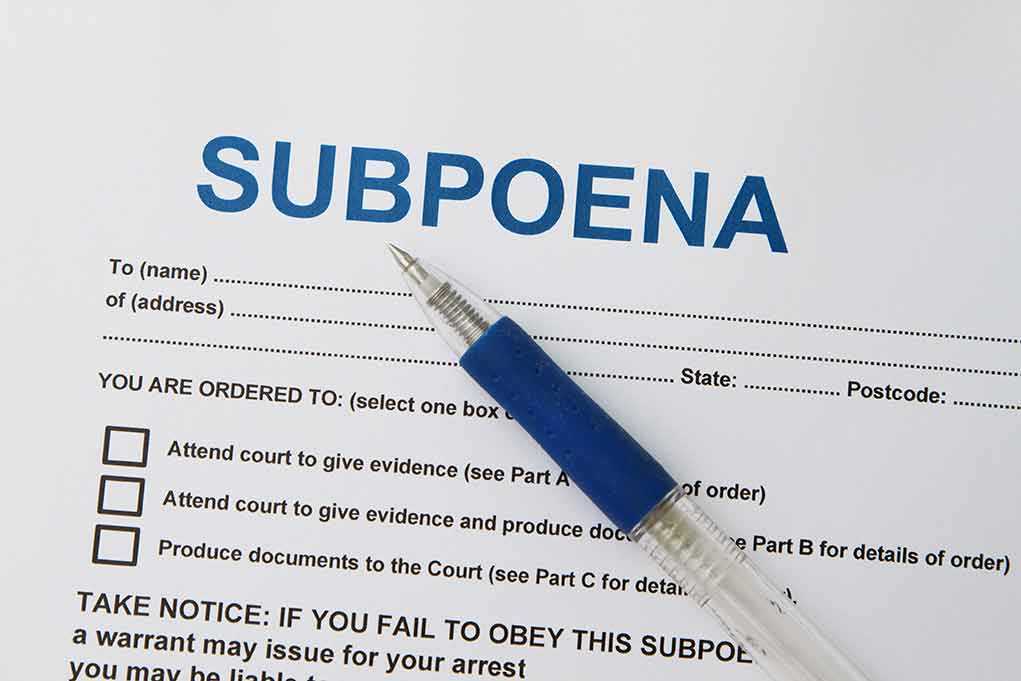
Congressional subpoenas targeting Bill and Hillary Clinton and top DOJ and FBI officials in the Jeffrey Epstein probe mark a high-stakes push for transparency that could finally expose government failures and elite connections that many Americans have long suspected.
Story Snapshot
- The House Oversight Committee issued subpoenas to Bill and Hillary Clinton, former Attorneys General, and ex-FBI Directors as part of its Epstein investigation.
- The Department of Justice faces an August 19 deadline to release all Epstein-related files or risk further congressional action.
- The bipartisan move reflects mounting public frustration over years of government secrecy and controversial non-prosecution deals involving Epstein.
- A House vote to declassify all Epstein materials may follow in September if officials stonewall these demands for accountability.
Unprecedented Subpoenas Target Elite Political Figures
On August 5, 2025, the House Oversight Committee, led by Chairman James Comer, issued formal subpoenas to former President Bill Clinton, former Secretary of State Hillary Clinton, and a roster of former Attorneys General and FBI Directors. The subpoenas demand testimony and documentation about the federal government’s handling of the Jeffrey Epstein case, a saga that has fueled widespread public mistrust and suspicions of elite protection. The Department of Justice must turn over all Epstein-related records by August 19, or face a potential House vote to force declassification.
This aggressive action comes after years of frustration with federal authorities’ opaque handling of Epstein’s prosecution and the controversial 2008 non-prosecution agreement. The bipartisan support for these subpoenas highlights a rare moment of unity in Congress, as both Republican and Democratic lawmakers seek answers on how Epstein’s network operated and whether powerful individuals evaded scrutiny. Speaker Mike Johnson and key committee members have emphasized that this investigation is driven by public demand for transparency, not partisan vendettas.
Epstein Case History: From Scandal to Congressional Showdown
Jeffrey Epstein’s 2019 arrest and subsequent death in jail, ruled a suicide, left many questions unanswered about his influential associates and the extent of his sex trafficking operations. Public skepticism soared after the DOJ concluded no “client list” existed and reaffirmed the suicide ruling in July 2025, decisions widely criticized as dismissive of legitimate concerns about government accountability. The current subpoenas are rooted in a long history of controversial plea deals and failed oversight, which have fostered a sense that the justice system protects the powerful while failing victims.
Past congressional probes into high-profile scandals, like Iran-Contra and Watergate, set the precedent for current actions. However, few have targeted as many elite figures from both parties at once. Bill Clinton’s documented interactions with Epstein—including flights on Epstein’s plane—have drawn particular scrutiny, as have the roles of former DOJ and FBI leaders who presided over key periods in the investigation. With mounting evidence that non-prosecution agreements and departmental secrecy allowed Epstein’s crimes to persist, lawmakers are under pressure to deliver answers and prevent future abuses.
Impact on Accountability, Public Trust, and Legislative Reform
The immediate effect of these subpoenas is increased pressure on the DOJ and FBI to disclose all relevant Epstein files, with reputational risks for any official seen as obstructing the investigation. Survivors and advocates for sex trafficking victims are closely watching, as this probe could shape future reforms to federal sex crime laws and plea agreement practices. Long-term, the investigation’s outcome may set a precedent for how Congress can compel transparency in sensitive criminal cases involving high-ranking officials.
🚨GHISLAINE MAXWELL TESTIFIES: CLINTON BLACKMAIL, EPSTEIN’S BODY FILES, AND HILLARY’S ALLEGED KILL LIST HANDED TO FOREIGN INTELLIGENCE
Ghislaine Maxwell detonates a political nuke: Bill Clinton was blackmailed by Epstein, not just over sex, but over bodies — “hundreds” of them.… pic.twitter.com/UOlxob7RGa
— CrazyDutch17 (@DSqldier17) July 30, 2025
Socially and politically, the probe could reshape narratives about elite accountability, government transparency, and the rule of law. Both parties face scrutiny, but for many conservative Americans, this moment represents a long-overdue reckoning with institutional failures that have eroded faith in justice and governance. While the economic impact is limited, legislative reforms prompted by these findings could alter how future cases of sex trafficking and official misconduct are prosecuted. As the September deadline for possible declassification approaches, the nation waits to see whether this investigation will finally pierce the veil of secrecy or become another chapter in government stonewalling.
Sources:
House Oversight Committee subpoenas Clintons and other ex-officials in Epstein probe
House Oversight Committee Subpoena Cover Letters (Official PDF)
House Oversight subpoenas DOJ, Clintons, Comey in Epstein probe
House Oversight Committee issues subpoenas for Epstein files
















